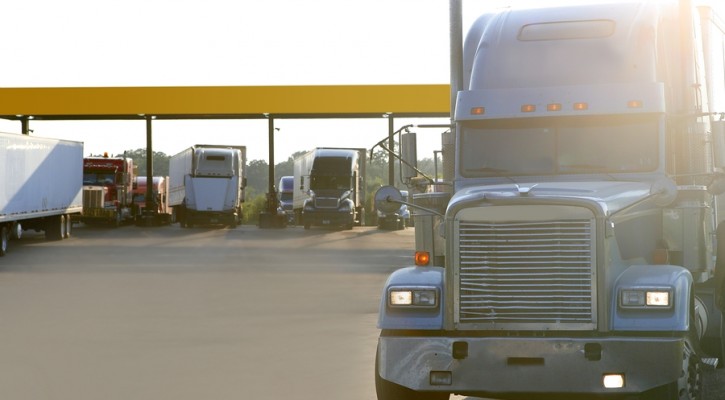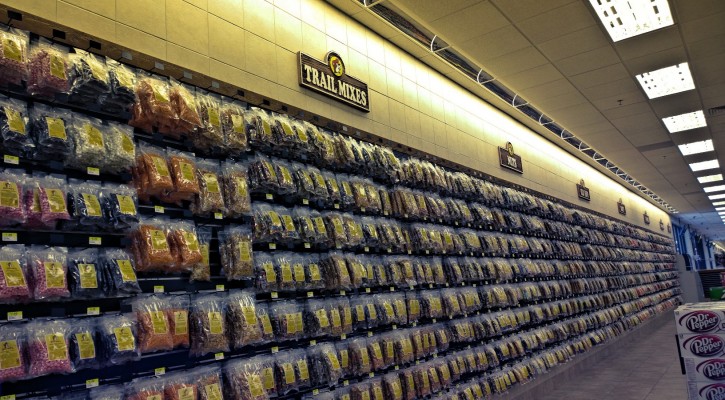
The Parking Dilemma
June 25, 2014
Parking is a necessity in the trucking industry. Sadly, it’s also a scarcity. Parking shortages are a major problem in the trucking world. Without a place to park, there is no place to sleep, shower, or even use the restroom.
How can truck drivers ensure they have adequate parking when travelling over-the-road? How can they avoid breaking the law when it comes to HOS (Hours of Service) rules and regulations? It’s a tricky dilemma, but we have a few tips to help out all the weary drivers out there:
Plan Carefully. Know your route. Research truck stops, rest areas, motels and overnight parking. Then make a solid game plan that will enable you to find a parking spot before your daily hours run out.
Drive Early. In crowded cities, truck stops and rest areas fill up quickly. However, you can secure a parking space early if you start your day earlier. By waking up around 3 a.m. and finding a parking spot before 6 p.m., you will beat the rush and save a lot of time hunting for a place to stop for the night.
Don’t Count on Walmart. In the old days, Walmart was known for their overnight parking. Big lots, few curbs and a general respect for the people who delivered their goods made these grocery stores a go-to place for trucker parking. However, these days many Walmart parking lots have these signs posted throughout the property:
NO TRUCK PARKING
VIOLATORS WILL BE TOWED AT THEIR OWN EXPENSE
Even a quick stop for groceries has resulted in bad experiences for trucker Ray Earl Bishop Jr. and blogger for Overdrive Online Wendy Parker. The days of free camping (aka boondocking) at Walmart are over. It’s best to keep on trucking until you find a truck stop or rest stop.
Know the Sweet Spots. Have a look at our previous post: Truck Stops, Pit Stops and other Over-The-Road Sanctuaries to learn all about the best places to park across the U.S. Then, feel free to share your knowledge and comment to help us make this list more complete.

Truck Stops, Pit Stops, and other Over-The-Road Sanctuaries
May 21, 2014
Buc-cee’s is a gas station chain known for its enormous parking lots, endless gas pumps, huge, sparkling-clean bathrooms, and shopping mall-like selection hot food, snacks, groceries, clothes, souvenirs, camping gear, BBQ supplies, and even toys. It’s the type of place where you can happily waste hours shopping, as well as a quick in-and-out for drivers in a hurry (the incredible number of gas pumps, toilets, and employees means you never have to wait in line).
Iowa 80 Truck Stop
I-80, Exit 284
Walcott, IA
Famously known as the largest truck stop in America, this place has parking for up to 800 rigs, and features a dentist office, dog wash, barbershop, customized truck accessories and even a truck museum.
I-80, Exit 21
Sparks, NV
A trucker casino in the casino-state, the Alamo Plaza features 20 acres of parking, 260 slot machines, blackjack tables and keno.
Derrick Plaza Truck Stop
I-85, Exit 71
Salisbury, NC
A truck stop that saves you gas! The Derrick Plaza features electricity stations so drivers can power their rigs and run heat, AC and appliances without wasting a drop of gas. They also have a great 24-hour restaurant, 24-hour chapel and a barbershop.
Jubitz Travel Plaza
I-5, Exit 307
Portland, OR
The Jubitz Travel Plaza is a sweet salvation when truckers are starved for a night out. This stop features live music, a dance club, an arcade, cinema, fine dining and upscale hotel suites
Highland Petro Stop
I-94 and Highway 20, Exit 333
Racine, WI
Stop here for some over-the-road pampering. Highland Petro Stop features walk-in chiropractic services and a hair salon.
Lodi Travel Center
I-71 and I-76 at Route 224, Exit 209
Seville, OH
The Lodi Travel Center brings a little modern class to life on the road with marble showers, a Starbucks and an internet lounge.
Little America
I-40, Exit 198
Flagstaff, AZ
A grand trucker-resort of sorts, with the convenience of a lounge, showers, laundry and truck service station as well as tempting extras such as western wear, boots, and Native American art and jewelry. There are also luxury hotel accommodations for those who feel like indulging.
Florida 595 Truck Stop
Intersection of I-595, 441, and the Florida Turnpike
Davie, FL
Stop here for the Tiki bar, spa, game room and chrome shop. Or, cure what ails your at the medical and dental clinic.
I-80, Exit 312
Grand Island, NE
Find all the conveniences of home at this travel center, with banking and mailing services, large showers, laundry facilities and a game room.
Clearwater Travel Plaza
Hwy 24, off I-94, exit 178
Clearwater, MN
Not your average truck stop – the Clearwater Travel Plaza serves up gourmet sandwiches and burgers on fresh-baked bread, and features a gift shop and book store.
Know Your Weight
April 8, 2014
One of the most difficult jobs for a trucker is keeping the tractor-trailer within the legal weight requirements. There is a standard maximum weight for commercial vehicles on the Interstate Highway System, and it is as follows:
Single Axle: 20,000 pounds
Tandem Axle: 34,000 pounds
Gross Vehicle Weight: 80,000 pounds
This simple standard weight law works well when shippers have a scale, or there is a scale nearby. However, when the shipper doesn’t have a scale and loads the trailer overweight, it is the trucker who gets fined. That’s just the way it is… at least for now. So, what can truckers do to ensure they are always within the weight requirements? Experienced drivers have a few tricks up their sleeve that allow them to “eyeball” a shipment and know the approximate weight, however beginners would do well to learn a few rules of thumb before hitting the road:
#1 Never Take Chances
While safety should always be your first priority, you also don’t want to leave your driving record up to chance, or your wallet, for that matter. For instance, a cop may pull you over on the way to a scale, or it may not be possible to find a scale before crossing an official weigh station. If this happens and you’re overweight, you can bet you will be the one receiving a ticket. Currently, overweight fines are about $500. So, do your homework and know how much your truck weighs (both fueled up and empty), what it looks like with the correct weight, and what it looks like when it’s close to overweight. This article at Life As A Trucker.com has some great advice for new drivers learning how to estimate their weight. You can also take this simple advice from an experienced trucker at www.truckingtruth.com:
“Some loads don’t require weighing if its under 40000 and you know how to read your air suspension gauge. Rule of thumb: under 20000 8th hole, 20000 to 30000 7th hole 30000 to 40000 6th hole and 40000 5th hole; works every time. Except when they screw the loading. That’s why its important to know how they load your trailer and where its loaded too. Being with a company awhile you will learn your freight, shippers and how its loaded.”
#2 Know your shipper
If it’s a new shipper, be sure to look at what they are loading, how much they are loading, and how they are loading it. If they ask how much weight you can haul, give yourself some wiggle room. For instance, if you weigh 32,000 pounds empty, then don’t tell them 48,000 pounds. That gives you absolutely no wiggle room, and it’s very unlikely that the shipper will know exactly how to position its products to ensure the weight on your axles is correct. Once you get to know your shippers better, you will remember who has scales, who doesn’t, who loads correctly and who to keep an eye on.
#3 Communicate with your dispatcher
Let the dispatcher know if the shipper has no scale. They may need to be informed of route changes, and they also might be able to locate a nearby scale for you.
#4 Know how to find nearby scales
There are quite a few strategies for finding nearby scales, but first you need to know about the two main types of scales: CAT scales and independent scales. CAT scales are always accurate and can give you a legal guarantee that your shipment is under the correct weight. Independent scales do not come with a guarantee, but they can give you documentation that you did indeed weigh the truck. Independent scales can be found at places such as gravel plants, landfills, recycling centers, feed mills, and household movers. To find a nearby scale, you can ask the shipper, your dispatcher, or use the following tools:
Or, if you have a smartphone, then browse the truck driving apps for the best scale finder for your phone. Like all things, there’s an app for that.
